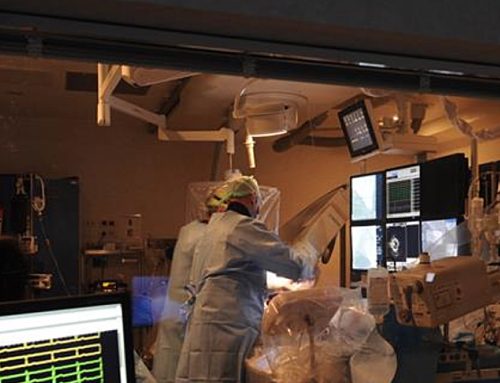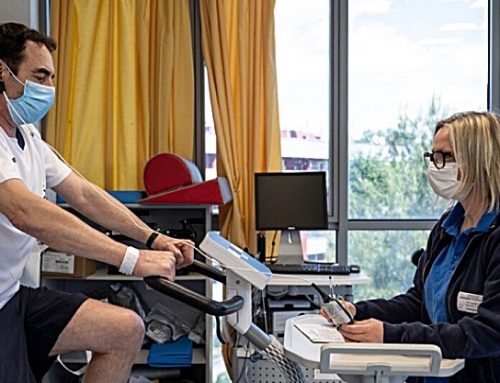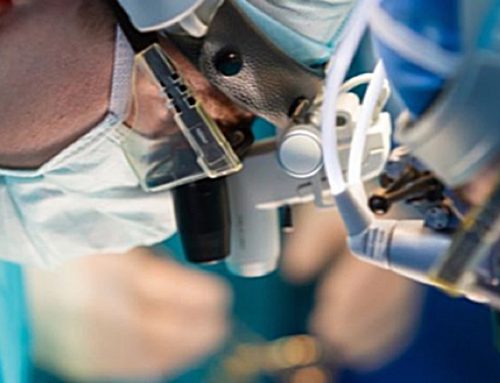OPERATED AT AGE 6 BY NIGUARDA’S HEART SURGEONS, SHE RELIES AGAIN ON THE HOSPITAL 65 YEARS LATER

Augusta was 6 years old when in 1957 was operated at Niguarda Hospital in Milan for a severe congenital heart disease (Fallot trilogy) with a pioneering technique developed by Prof. Angelo De Gasperis, the first in Italy to operate this congenital disease since 1956. Sixty-five years after her first operation, Mrs Augusta returned to the Niguarda General Hospital to be cured again.
“Many years ago, on 18th November 1957, Professor Angelo De Gasperis performed a surgical operation on a six-year-old girl with Fallot’s trilogy, at Niguarda General Hospital. This was before I was born, – says Stefano Marianeschi, who is head of paediatric cardiac surgery at the hospital. – The year before, Professor De Gasperis had became the first Italian surgeon to perform surgery on this innate disorder. Initially, he faced many difficulties and resorted to palliative measures until discovering an effective method“.
In fact, Prof. De Gasperis established at Niguard the first Italian Department of Thoracic Surgery and carried out the first ‘open heart’ surgery of ventricular septal defect closure on an 18-month-old girl during the same year. This marks the initial use of extracorporeal circulation intervention in Italy.
“That little girl, Augusta, was one of the lucky patients to survive that complex operation, – adds Dr. Marianeschi, – which involved opening the entire chest through a transverse thoracotomy, using femoral extracorporeal circulation and deep hypothermia“.
After 65 years her first operation, Augusta needed to replace her pulmonary valve, as its insufficiency caused her to experience fatigue with minimal exertion. At first, Mrs Augusta consulted with heart doctors at other hospitals who suggested that she should not take any action and maintain the status quo. Finally, after a few phone calls, she was referred to Niguarda General Hospital, where cardiac surgeons successfully re-intervened her heart to correct the problems that had been bothering her for some time. Dr Marianeschi performed the operation.
“That the 6-year-old girl, who appeared in a black and white photo with Professor De Gasperis when he was featured in the newspaper for his successful surgery, – the doctor says, – has now been discharged. She is now 71 years old, and happy to have overcome this obstacle”.



 As a Public General Hospital, Niguarda offers a comprehensive range of medical services for both adults and children. The hospital employs a fully-integrated medical approach that covers all medical disciplines and technologies, from diagnosis to rehabilitation, thus ensuring the highest standards of care, even in the most complex or emergency situations. His team of highly skilled physicians, scientists, and nursing staff work collaboratively to provide the best possible treatment and outcomes.
As a Public General Hospital, Niguarda offers a comprehensive range of medical services for both adults and children. The hospital employs a fully-integrated medical approach that covers all medical disciplines and technologies, from diagnosis to rehabilitation, thus ensuring the highest standards of care, even in the most complex or emergency situations. His team of highly skilled physicians, scientists, and nursing staff work collaboratively to provide the best possible treatment and outcomes. Doctor Stefano Maria Marianeschi is Head of Paediatric Cardiac Surgery within the Cardio-Thoracic-Vascular Department at Niguarda General Hospital.
Doctor Stefano Maria Marianeschi is Head of Paediatric Cardiac Surgery within the Cardio-Thoracic-Vascular Department at Niguarda General Hospital. As a General Hospital, Niguarda hosts all the disciplines for adults and children. All medical disciplines and technologies, from diagnosis to rehabilitation, are integrated aiming at serving the best care even in situations of emergency or high complexity. Physicians, scientists and nurse staff have skills to work together.
As a General Hospital, Niguarda hosts all the disciplines for adults and children. All medical disciplines and technologies, from diagnosis to rehabilitation, are integrated aiming at serving the best care even in situations of emergency or high complexity. Physicians, scientists and nurse staff have skills to work together.
 Minimally invasive cardiac surgery for treatment of the mitral valve, aortic valve and of coronaropathy (mini sternotomy – right and left mini thoracotomy, endoscopic vessel harvesting by coronary aortic bypass)
Minimally invasive cardiac surgery for treatment of the mitral valve, aortic valve and of coronaropathy (mini sternotomy – right and left mini thoracotomy, endoscopic vessel harvesting by coronary aortic bypass) Tetralogy of Fallot is a combination of four heart changes present at birth. There is a hole in the heart called a ventricular septal defect. There also is a narrowing of the pulmonary valve or other area along the pathway between the heart and lungs. Narrowing of the pulmonary valve is called pulmonary stenosis. The body’s main artery, called the aorta, is misplaced. The lower right heart chamber wall is thickened, a condition called right ventricular hypertrophy. Tetralogy of Fallot changes how blood flows through the heart and to the rest of the body.
Tetralogy of Fallot is a combination of four heart changes present at birth. There is a hole in the heart called a ventricular septal defect. There also is a narrowing of the pulmonary valve or other area along the pathway between the heart and lungs. Narrowing of the pulmonary valve is called pulmonary stenosis. The body’s main artery, called the aorta, is misplaced. The lower right heart chamber wall is thickened, a condition called right ventricular hypertrophy. Tetralogy of Fallot changes how blood flows through the heart and to the rest of the body.

